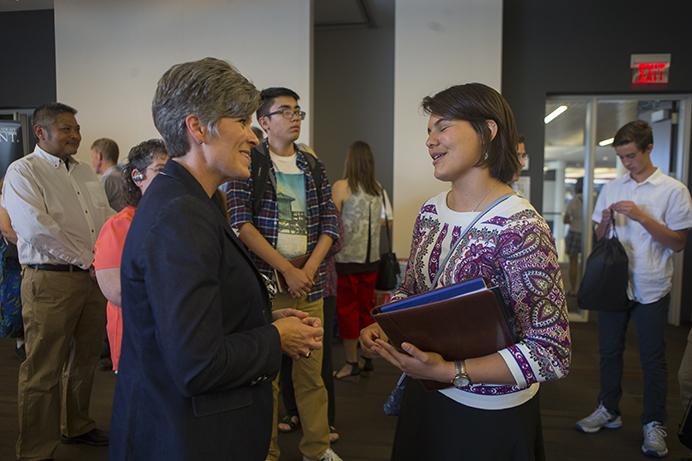As students across Iowa settle into the school year, it’s a great time to reflect on the opportunity that education brings for so many across our country. An education is a powerful tool of social progress that develops community capacity, increases quality of life, and allows individuals to foster their passions and contribute to the betterment of society. As recent M.P.H. graduates, Emily and I are both grateful for our public-health education, which has given us the skills needed to pursue our passion for helping others to lead healthy lives.
Even one additional year of school can increase one’s lifetime earnings by 10 percent and reduce the risk of males becoming involved in conflict by 20 percent, but these lifelong benefits of education are inaccessible to many. Globally, more than 263 million children are out of school. In some regions of the world, such as South Sudan, a young woman is more likely to die in childbirth than graduate from high school. For these children, a lack of access to education is not merely a missed opportunity, but a disparity that deprives whole communities of a fundamental building block for creating safe and healthy societies.
RELATED: Private support for higher education is critical
The Global Partnership for Education is mobilizing world leaders to provide 25 million children with quality education, thereby reducing their risk of falling victim to political conflict, disease, and poverty. This year, the White House pushed to cut funding for global education. Now is the time for Iowa’s congressional leaders to prioritize education, and in doing so, take strides in improving political stability and eliminating poverty for the future of our world’s children.
We need to count on Sen. Joni Ernst, Sen. Chuck Grassley, and Rep. Dave Loebsack to sign the bipartisan congressional resolution to support the Global Partnership for Education.
Emily Hejna
and Audrey Schroer
Iowa City, Iowa



